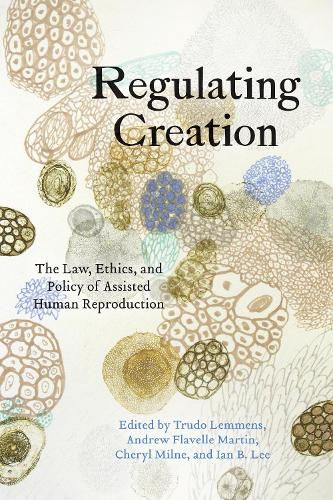Readings Newsletter
Become a Readings Member to make your shopping experience even easier.
Sign in or sign up for free!
You’re not far away from qualifying for FREE standard shipping within Australia
You’ve qualified for FREE standard shipping within Australia
The cart is loading…






In 2004, the Assisted Human Reproduction Act was passed by the Parliament of Canada. Fully in force by 2007, the act was intended to safeguard and promote the health, safety, dignity, and rights of Canadians. However, a 2010 Supreme Court of Canada decision ruled that key parts of the act were invalid.
Regulating Creation is a collection of essays built around the 2010 ruling. Featuring contributions by Canadian and international scholars, it offers a variety of perspectives on the role of law in dealing with the legal, ethical, and policy issues surrounding changing reproductive technologies. In addition to the in-depth analysis of the Canadian case the volume reflects on how other countries, particularly the U.S., U.K. and New Zealand regulate these same issues.
Combining a detailed discussion of legal approaches with an in-depth exploration of societal implications, Regulating Creation deftly navigates the obstacles of legal policy amidst the rapid current of reproductive technological innovation.
$9.00 standard shipping within Australia
FREE standard shipping within Australia for orders over $100.00
Express & International shipping calculated at checkout
In 2004, the Assisted Human Reproduction Act was passed by the Parliament of Canada. Fully in force by 2007, the act was intended to safeguard and promote the health, safety, dignity, and rights of Canadians. However, a 2010 Supreme Court of Canada decision ruled that key parts of the act were invalid.
Regulating Creation is a collection of essays built around the 2010 ruling. Featuring contributions by Canadian and international scholars, it offers a variety of perspectives on the role of law in dealing with the legal, ethical, and policy issues surrounding changing reproductive technologies. In addition to the in-depth analysis of the Canadian case the volume reflects on how other countries, particularly the U.S., U.K. and New Zealand regulate these same issues.
Combining a detailed discussion of legal approaches with an in-depth exploration of societal implications, Regulating Creation deftly navigates the obstacles of legal policy amidst the rapid current of reproductive technological innovation.